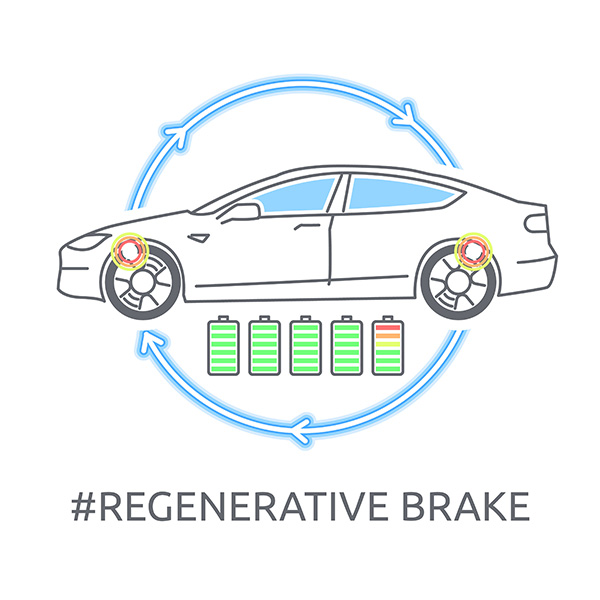
Hybrid cars have become a popular choice for eco-conscious drivers, offering a blend of gasoline and electric power that enhances fuel efficiency while reducing emissions. One key technology that makes hybrid vehicles so efficient is regenerative braking. But what exactly is regenerative braking, and how does it work in a hybrid car? Let’s break it down in simple terms to understand how this smart technology saves energy and contributes to a smoother driving experience.
Regenerative Braking
Regenerative braking is a technology that allows hybrid cars to recover energy that would otherwise be lost during braking. In traditional vehicles, when you press the brake pedal, the kinetic energy of the moving car is converted into heat by the brake pads and then dissipated into the air, effectively wasting that energy. However, regenerative braking systems in hybrid cars capture some of that energy and convert it into electrical energy, which is then stored in the car’s battery.
This process not only improves the car’s overall efficiency but also helps extend the life of the vehicle’s brake pads by reducing wear and tear. Essentially, regenerative braking turns your car’s momentum into usable energy, making the most out of every stop.
How Regenerative Braking Works
So, how does this energy-saving process actually happen? When you press the brake pedal in a hybrid car equipped with regenerative braking, the car’s electric motor switches to function as a generator. Instead of drawing power from the battery to move the car, the motor starts to generate electricity as the wheels slow down.
This is achieved by reversing the direction of the motor’s rotation, which creates resistance. This resistance is what slows down the car, and in the process, the motor generates electricity. The electricity produced is then fed back into the car’s battery, where it is stored for future use, such as when the car accelerates again. This seamless conversion of kinetic energy into electrical energy helps reduce the overall energy consumption of the vehicle.
Blending Regenerative and Conventional Braking
While regenerative braking is efficient, it doesn’t always provide enough stopping power on its own, especially in situations that require sudden or heavy braking. That’s where conventional braking systems come in. Hybrid cars are designed to blend regenerative braking with traditional friction brakes to ensure that the car can stop safely in all conditions.
During light braking, the regenerative system does most of the work, gradually slowing down the car and capturing energy. However, when you need to stop quickly or when the car is moving at high speeds, the conventional braking system kicks in to provide the additional stopping force needed. This combination ensures that the car remains safe and responsive while still maximizing energy efficiency.
The Role of Regenerative Braking in Energy Efficiency
One of the main reasons hybrid cars are so efficient is because of the energy-saving benefits of regenerative braking. By capturing and reusing energy that would otherwise be lost, regenerative braking reduces the need for the engine to generate as much power, thereby lowering fuel consumption.
In urban driving conditions, where frequent stopping and starting are common, the benefits of regenerative braking are particularly noticeable. Each time you stop at a traffic light or slow down in traffic, the system recovers energy and stores it in the battery, ready to be used the next time you accelerate. Over time, this leads to significant fuel savings and reduced emissions, making hybrid cars a more environmentally friendly option.
The Future of Regenerative Braking
As automotive technology continues to evolve, regenerative braking systems are becoming more advanced. Manufacturers are constantly improving the efficiency and effectiveness of these systems, and they are being integrated into a wider range of vehicles, including fully electric cars.
In the future, we can expect regenerative braking to play an even more significant role in enhancing the efficiency of vehicles, particularly as the world shifts toward more sustainable transportation options. For drivers, this means not only a reduction in fuel costs but also a more eco-friendly driving experience.
Ready to maximize your car’s efficiency with top-notch care? Kamphaus Auto Care offers comprehensive inspections and maintenance for hybrid vehicles, ensuring you get the most out of every drive. Contact us now to book an appointment!